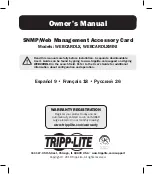
Montage
Zur Montage setzen Sie das Gerät von oben
mit der Halterung auf die Hutschiene
(
).
Drücken Sie das Gerät gleichzeitig an der
Frontseite in Richtung der Hutschiene, bis das
Gerät hörbar einrastet (
)
.
Schließen Sie die Kabel für Spannungs-
versorgung und Datenübertragung erst
nach erfolgter Montage an das Gerät an.
Überhitzungsgefahr!
Halten Sie über und unter dem Gerät
einen Abstand von mind. 4 cm ein!
Demontage
Entfernen Sie vor der Demontage des
Gerätes alle Kabel und Leitungen!
Zur Demontage den Metallbügel der Halte
-
rung mit dem Finger nach unten ziehen (
)
und gleichzeitig das Gerät an der Unterkante
nach vorn ziehen (
)
. Danach können Sie
das Gerät sicher nach oben von der Hutschie
-
ne entfernen.
VORSICHT!
Beim Zurückschnappen des Metallbügels
besteht Quetschgefahr!
Achten Sie auf eine feste Position Ihres
Fingers, bevor Sie an der Halterung
ziehen!
Mounting
Place the device with the clip on the DIN rail
from top (
).
Simultaneous push the front
of the device toward the mounting rail until it
audibly snaps into place
(
)
.
Do not terminate power supply or data
transmission cables before the device is
mounted.
Overheating risk
!
Make sure, that the device has a di-
stance (top and bottom) of min. 4 cm!
Removal
Disconnect all cables before removal!
To remove pull under the metal lever of the
clip with the finger (
) and simultaneously
pull out the lower edge (
)
. Now remove the
device from the mounting rail.
CAUTION!
Risk of crushing the finger, if the metal
lever snaps back!
See that you have the finger in a fixed
position, before you pull under the metal
lever!
DE
EN
Technische Kennwerte:
U
N
... Nennspannungsbereich
U ... Zulässiger Bereich
I
N
... Eingangsstrom
S ... Sicherung (intern)
IP ... Schutzart (im eingebauten Zustand)
T ... Betriebstemperatur
D ... Dimensionen (B x H x T)
Technical characteristics:
U
N
... Nominal voltage range
U ... Permissible range
I
N
... Nominal current
S ... Fuse (internal)
IP ... Degree of protection (when mounted)
T ... Operating temperature
D ... Dimensions (W x H x D)
Alle Anschlüsse /
all terminals
0,08 ... 2,5 mm²
AWG 28 ... 12
➀
➁
Ha-VIS FTS 3100s-A
U
N
+24 V DC
U
9,6 V ... 42,4 V
I
N
270 mA (24 V )
S
T 2 A
IP
30
T
0 °C ... +70 °C
D
44 x 130 x 100 mm
d
a
Status- und Diagnoseanzeigen
Diagnose
LED (a) grün AN: Gerät arbeitet fehlerfrei
rot AN:
Fehler / Diagnose
RJ45
LED (c) grün AN: Link ist aktiv
blinkt:
Transfer findet statt (Act)
LED (d) gelb AN: 100 Mbit/s (Speed)
AUS:
10 Mbit/s
USB Konfiguration Port
USB Buchse (b) Typ B
Status and diagnostic indicators
Diagnosis
LED (a) Green ON: device acts error free
Red ON: error / diagnosis
RJ45
LED (c) Green ON: Link is active
blinking: Transfer in progress (Act)
LED (d) Yellow ON: 100 Mbit/s (Speed)
OFF:
10 Mbit/s
USB Configuration Port
USB socket (b) Type B
c
b
Spannungsversorgung
Achten Sie auf die richtige Polarität!
Klemmenbelegung Power:
Klemme US1 +:
+24 V DC
Klemme US1 -:
0 V
Klemme US2 +:
+24 V DC
Klemme US2 -:
0 V
Klemme
:
FE
Power supply
Ensure correct polarity!
Terminal assignment Power:
Terminal US1 +:
+24 V DC
Terminal US1 -:
0 V
Terminal US2 +:
+24 V DC
Terminal US2 -:
0 V
Terminal
:
FE
Connecting the RJ45 connector
(see table)
Fast Ethernet ports
ports 1 ... 10
Note:
For LAN (Enviroment A acc. to IEEE 802.3,
ch
ap. 27.3.5.1) only, not for connections to
telecommunication networks
Anschluss der Steckverbinder RJ45
(siehe Tabelle)
Fast Ethernet Ports
Ports 1 ... 10
Hinweis:
Nur für LAN (Enviroment A nach IEEE 802.3,
Kap. 27.3.5.1), nicht für Verbindung zu
Telekommunikationsnetzen
Kontakt /
contact
100
Mbit/s
Ports
1 ... 10
1
Tx+
2
Tx-
3
Rx+
4
5
6
Rx-
7
8
(e)
(d)




















